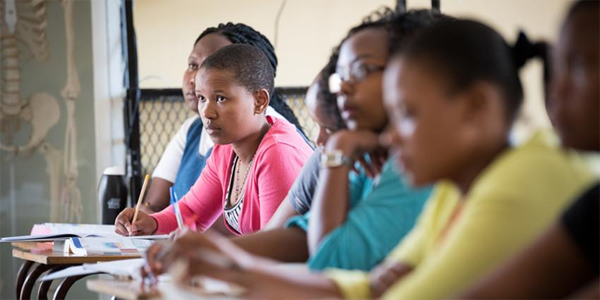The panel was organized by the World Council of Churches (WCC), ACT Alliance, Christian Aid, Lutheran World Federation, and Norwegian Church Aid on 14 August at the Festival to Fight Inequality.
The World Council of Churches is an ecumenical partner supported by the Interdenominational Cooperation Fund apportionment, which enables United Methodists to share a presence and a voice in the activities of several national and worldwide ecumenical organizations.
Sheikh Yusuf Ayami from the Family Development Initiative in Zambia underlined that economic justice is a key tenet of Islam and therefore gaping inequities ought not to be tolerated.
Reflecting on wealth, poverty and economic inequality from a Christian viewpoint, Athena Peralta, WCC program executive for economic and ecological justice, pointed out that tackling poverty and ecological degradation entails tackling wealth “which is considered a blessing from God and must be shared with the community.”
Churches are campaigning for the Zacchaeus Tax which “is a call for repentance for excessive riches amidst endemic poverty, a redistribution of resources amidst scandalous inequalities and reparations for all those who have been enslaved and robbed of land and resources,” Peralta shared.
Speaking on debt and inequality, Adi Setia from the Islamic Centre for Legislation and Ethics in Malaysia pointed out that in Islamic thinking “a monetary loan offered to someone in need is a charitable act, and hence no interest is to be charged on that loan.” Overall, Islam “has taken clear steps to ensure that debt or indebtedness can never be made into an instrument of oppression by the creditor on the debtor or the indebted.”
Dr Masiiwa Gunda, WCC program executive for programmatic responses on overcoming racism, raised the issue of racial inequality. “As Christians, we believe that God created the one human race with some differences or diversities but equal in dignity, responsibility and with equal access to resources,” he said.
“To be a Christian entails not simply being non-racist, it demands being anti-racist! It is not enough to frown upon racism, we ought to act against racism because racial inequality is symptomatic of a festering disease,” he added.
The panel also addressed the intersections between economic, race and gender-based disparities as well as inequalities in access to COVID-19 vaccines.
World Council of Churches website
One of seven apportioned giving opportunities of The United Methodist Church, the Interdenominational Cooperation Fund enables United Methodists to share a presence and a voice in the activities of several national and worldwide ecumenical organizations. Please encourage your leaders and congregations to support the Interdenominational Cooperation Fund apportionment at 100 percent.





